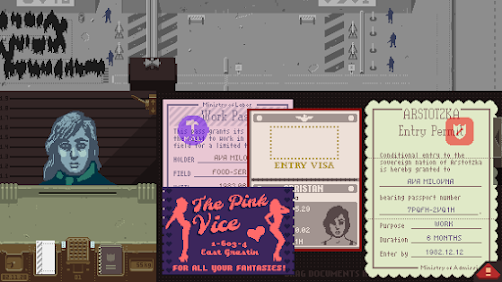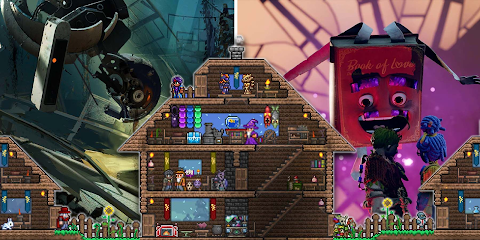Papers, Please: A Gritty Tale of Immigration and Survival in Indie Horror
Indie games have a unique way of pushing boundaries and exploring unconventional themes. One such gem that emerged from the indie game scene is "Papers, Please," a dystopian puzzle simulation developed by Lucas Pope. This seemingly mundane yet chilling game has captured the hearts of players worldwide with its gripping narrative and thought-provoking themes. In this blog post, we will delve into the eerie world of "Papers, Please" and explore what makes it such a compelling indie horror game.
The tension steadily mounts as players grapple with moral dilemmas. Do you allow a desperate mother and child to enter even if their papers are not in order, potentially risking your job? Or do you follow the rules to the letter, knowing that the consequences for some may be dire?
As you navigate the bureaucratic nightmare of Arstotzka, you'll question your own morals and values, and you'll be haunted by the choices you make. In this bleak and authoritarian dystopia, "Papers, Please" reminds us that the scariest monsters may not be supernatural creatures but rather the consequences of our own actions in a world that has lost its humanity.
The Setting: A Bleak and Authoritarian Dystopia
"Papers, Please" is set in the fictional communist country of Arstotzka during the early 1980s. Players take on the role of a border inspector whose job is to process the paperwork of people attempting to enter the country. As the game unfolds, the atmosphere grows increasingly oppressive, mirroring the grim reality of living under an authoritarian regime.The Horror of Bureaucracy
What makes "Papers, Please" a unique horror game is that it doesn't rely on traditional horror elements like jump scares or monsters. Instead, it delves into the horrors of bureaucracy and moral ambiguity. Players must meticulously examine documents, cross-referencing information, and making difficult decisions about who can enter Arstotzka and who cannot.The tension steadily mounts as players grapple with moral dilemmas. Do you allow a desperate mother and child to enter even if their papers are not in order, potentially risking your job? Or do you follow the rules to the letter, knowing that the consequences for some may be dire?
The Consequences of Your Choices
The game excels in creating a sense of dread as players face the consequences of their actions. Every decision has a ripple effect, leading to various outcomes, some of which are truly haunting. The fear of making a mistake and the dread of potential repercussions keep players on edge throughout the game.The Human Stories
What elevates "Papers, Please" beyond a simple bureaucracy simulator is its ability to tell deeply personal stories. As you process the paperwork of each individual, you catch glimpses into their lives, their struggles, and their hopes. These brief but poignant interactions humanize the characters, making you feel the weight of your decisions.The Visuals and Audio
The game's minimalist pixel art style and hauntingly atmospheric soundtrack contribute significantly to its eerie ambiance. The desaturated colors and stark, utilitarian design of the border checkpoint add to the feeling of hopelessness and despair.Conclusion
"Papers, Please" is not your typical horror game, but it delivers an unsettling experience that lingers long after you've put down the controller. It's a testament to the power of indie games to tackle complex themes and emotions in unique and thought-provoking ways.As you navigate the bureaucratic nightmare of Arstotzka, you'll question your own morals and values, and you'll be haunted by the choices you make. In this bleak and authoritarian dystopia, "Papers, Please" reminds us that the scariest monsters may not be supernatural creatures but rather the consequences of our own actions in a world that has lost its humanity.




Comments
Post a Comment